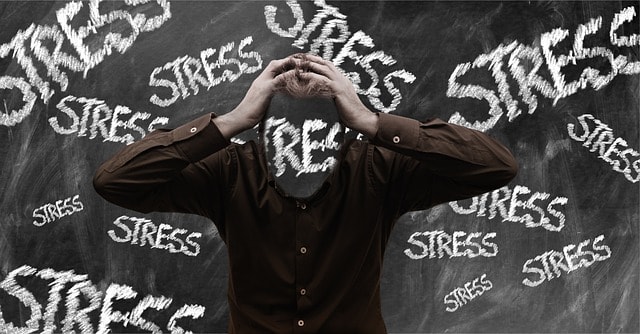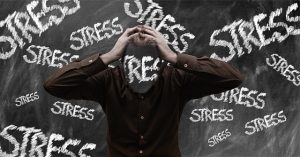What’s the Difference Between Proactive and Reactive Stress Management Strategies?

Mental Health Essentials at a Glance
Proactive and Reactive Stress Management
- Proactive vs Reactive: Proactive stress management prevents stress before it happens, while reactive strategies address stress after it has occurred.
- Key Proactive Strategies: Meditation, regular exercise, and planning ahead to build resilience.
- Top Reactive Strategies: Breathing exercises, seeking support, and mindfulness to manage stress in the moment.
- Why Proactive Wins: Proactive approaches lead to sustained well-being and lower stress levels over time.
- Your Next Step: Learn how to create a personalised stress management plan that fits your life.
Book a Call to start mastering stress management, or Read More for a deep dive into the strategies.
Deep Dive: Ecological and Evolutionary Overview
Everyone knows and talks about how stress isn’t good, but fewer seem to know how to manage stress. The key to managing stress effectively boils down to two approaches, Proactive and Reactive Stress Management, each with distinct behavioural aspects:
- Being proactive – Proactive approaches involve adjusting your mindset or behaviour before a stressful situation has happened.
- Being reactive – Reactive approaches suggest changing your mindset or behaviour once the initial stress has transpired.
Often, we consider stress exclusively as outside events that press in on our lives, such as financial troubles, car accidents or unreasonable employers. But, most of our stress is psychological suggesting that it has less to do about the events that cause the stress but more about how we respond to it. Our perception of the situation is what triggers the stress response.
When it comes to proactive and reactive stress management strategies, both can be healthy. Prepare yourself for future stress with proactive strategies and apply healthy reactive strategies in the moment. The behavioural expression of these coping styles can significantly influence how individuals manage stress and adapt to their environments.
Different Types of Stress
There are two kinds of stressors, acute stressors and chronic stressors.
Different types of stressors can trigger varying levels of emotional reactivity, influencing how individuals cope with stress.
Acute stressors
These are circumstantial triggers that cause us to feel anxious. The anxiety peaks promptly and then subsides.
Chronic stressors
A chronic stressor remains for a long time. Sometimes chronic stressors are naturally prolonged, like when someone we love suffers from terminal illness for an extended period. But often, chronic stress originates from our preoccupation with it. The more you think about it, the more upset you become.
Now, the stress is triggered by your inability to let it go and not by the actual event. The majority of stress is about simply this. Chronic stress can lead to significant mental health issues if not managed effectively.
Understanding Proactive Coping
Definition and Benefits
Proactive coping is a critical set of abilities for stress management and well-being. It involves taking steps to prevent stress before it occurs or preparing for potential stressors. By adopting proactive coping strategies, individuals can build resilience and enhance their ability to handle challenges.
This approach not only reduces stress and anxiety but also promotes better physical and mental health. When you engage in proactive coping, you gain a stronger sense of control over your life, which can lead to improved overall well-being.
Developing Proactive Coping Skills
Developing proactive coping skills requires a combination of self-awareness, goal-setting, and problem-solving abilities. Start by identifying your strengths and weaknesses, and set realistic goals that align with your capabilities. Create a plan to achieve these goals, and practice mindfulness to stay focused and present.
Confront negative thinking patterns and replace them with positive, constructive thoughts. Building a support system of friends, family, or mentors can also provide valuable encouragement and guidance.
Additionally, explore relaxation techniques such as deep breathing, meditation, and yoga to manage stress and develop a proactive approach to coping.
The Importance of Mental Health
Ecological and Evolutionary Overview
Mental health is a vital component of overall health and well-being, influenced by a complex interplay of ecological and evolutionary factors. From an ecological perspective, mental health is shaped by your environment, including social relationships, physical surroundings, and access to resources.
For example, supportive social networks and a safe living environment can significantly enhance mental well-being. From an evolutionary perspective, mental health is influenced by genetic predispositions, brain structure, and behavioral traits.
Understanding these factors can provide valuable insights into developing effective coping mechanisms and mental health interventions. By recognizing the ecological and evolutionary influences on mental health, we can better appreciate the importance of a holistic approach to mental well-being.
Changing Your Response Strategy to Stressful Situations
Stress management is a crucial aspect of maintaining overall well-being. Various strategies can be employed to handle stress effectively, including mindfulness, exercise, and time management. Each individual may respond differently to these strategies, and it is essential to find what works best for you. Developing behavioural plasticity can help individuals adapt their coping strategies to better manage stress.
Proactive Coping Strategies
As we’ve mentioned before, proactive strategies are the things we can do to make us more immune to stress. They help limit the duration and severity of the physical repercussions of stress. Some examples include:
- Cardiovascular conditioning – exercising for 20 to 30 minutes at least three times a week
- Nutritional diet – consuming nutritious foods and reducing caffeine and alcohol intake
- Optimism – adopting the mindset of a creative, resourceful problem-solver are open to challenges
- Support network – finding mentors who can support us
- Meditation – making a habit of daily meditation practice
Cognitive traits such as problem-solving abilities and optimism play a crucial role in proactive coping.
Reactive Coping Style Strategies
Reactive strategies are things we do when stress has already happened to help us clear our heads so we can deal with the problems caused by the stressor.
- Deep breathing – deal with anxiety by taking slow deep breaths. Hold them for a few seconds and exhale completely. Repeat several times until you feel relaxed.
- Look at the problem from a different perspective – think of the stressor as a puzzle that you can solve
- Focusing on “small wins” – break down the problem into many small challenges and consider how you can solve them one at a time
Understanding difference between proactive and reactive stress management strategies can help individuals choose the most effective reactive strategies.
Be realistic about the changes you make, and keep in mind that some stress management strategies may have immediate effects, while others will take longer.
Tailoring Proactive and Reactive Stress Management to Your Life
Stress is an inevitable part of life, but how you handle it makes all the difference. The beauty of proactive and reactive stress management lies in its flexibility—you can adapt these strategies to your unique circumstances. By combining proactive approaches, such as building resilience through meditation and exercise, with effective reactive techniques, like deep breathing and mindfulness, you can maintain balance even during the most challenging times.
For instance, you might start your day with a proactive routine—exercise, a healthy breakfast, and a few minutes of meditation. Then, if unexpected stress arises, a reactive approach like pausing for a moment of mindfulness or practising gratitude can help you regain perspective and composure.
Recognising the interplay between proactive and reactive stress management empowers you to anticipate potential challenges and address them effectively when they occur. It’s not about choosing one approach over the other but rather integrating both into a holistic stress management plan.
Why Proactive and Reactive Stress Management Is Essential
Understanding the benefits of proactive and reactive stress management allows you to lead a life with less overwhelm and greater clarity. Proactive strategies lay the foundation for long-term resilience, enabling you to prepare for potential stressors. Meanwhile, reactive strategies are there to catch you when life throws unexpected curveballs.
This dual approach not only improves mental health but also enhances physical health, relationships, and overall quality of life. By committing to both proactive and reactive methods, you’re creating a sustainable system for managing stress in every facet of your life.
To find out more about how we support people with challenging behaviour using reactive and proactive strategies, get in touch with the team at Integrative Coaching and book your free session.
Not Ready Yet?
Sign up for our Free Personal Development Course

